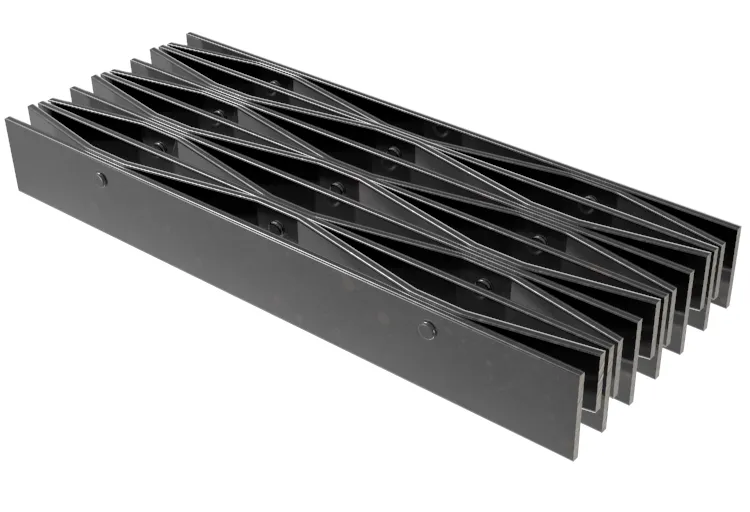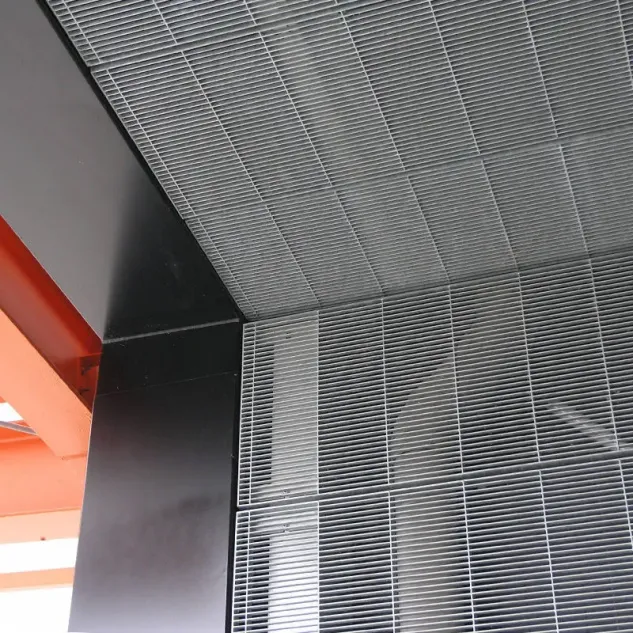- Industrial zone, South of Anping Town, Hengshui, Hebei, China.
- sales@hfpetromesh.com
- +86-18931809706
2 月 . 12, 2025 14:02
Back to list
Steel Grating
Steel walkways have emerged as an indispensable element in various architectural and industrial applications, reflecting a perfect blend of functionality and aesthetic appeal. Over the years, the demand for durable and safe walkways has propelled the adoption of steel walkways across different sectors, including commercial, residential, and industrial spaces.
In commercial spaces, steel walkways are often favored for their sleek appearance and the contemporary touch they provide. Whether used in retail complexes or office parks, they enhance the design aesthetics while fulfilling practical needs. Architects often choose steel not just for its structural benefits but also for its ability to be shaped and finished in ways that match specific design visions, making it both a functional and decorative component. Residentially, steel walkways are being increasingly incorporated in modern housing designs, particularly in multi-level homes or spaces that emphasize open-plan living. Their minimalistic and industrial look complements modern architectural styles, creating an interplay of materials that elevates the visual appeal of living spaces. Trust is also built on the maintenance efficiency that steel walkways offer. Unlike wood or other materials that may require frequent upkeep or replacements due to weathering or pest issues, steel walkways demand minimal maintenance. A periodic inspection and occasional cleaning are often sufficient to maintain their condition, proving them to be a cost-effective solution over time. Steel walkways undoubtedly stand out in the marketplace due to their unparalleled strength, versatility, and longevity. By choosing to implement these walkways, decision-makers in various fields ensure that they are not only accommodating current operational needs but are also investing in future-ready infrastructure. Thus, the adoption of steel walkways signifies a commitment to safety, quality, and innovation, reinforcing their indispensable role across industries.


In commercial spaces, steel walkways are often favored for their sleek appearance and the contemporary touch they provide. Whether used in retail complexes or office parks, they enhance the design aesthetics while fulfilling practical needs. Architects often choose steel not just for its structural benefits but also for its ability to be shaped and finished in ways that match specific design visions, making it both a functional and decorative component. Residentially, steel walkways are being increasingly incorporated in modern housing designs, particularly in multi-level homes or spaces that emphasize open-plan living. Their minimalistic and industrial look complements modern architectural styles, creating an interplay of materials that elevates the visual appeal of living spaces. Trust is also built on the maintenance efficiency that steel walkways offer. Unlike wood or other materials that may require frequent upkeep or replacements due to weathering or pest issues, steel walkways demand minimal maintenance. A periodic inspection and occasional cleaning are often sufficient to maintain their condition, proving them to be a cost-effective solution over time. Steel walkways undoubtedly stand out in the marketplace due to their unparalleled strength, versatility, and longevity. By choosing to implement these walkways, decision-makers in various fields ensure that they are not only accommodating current operational needs but are also investing in future-ready infrastructure. Thus, the adoption of steel walkways signifies a commitment to safety, quality, and innovation, reinforcing their indispensable role across industries.
Share
Prev:
Next:
Latest news
-
The Power of Pyramid Shaker Screen - A 3-Dimensional SolutionNewsOct.24,2024
-
Exploring the Versatility and Durability of Steel GratingNewsOct.24,2024
-
Revolutionizing Drilling Efficiency with Steel Frame Shaker Screens for Mud Shale ShakersNewsOct.24,2024
-
Potential of Shale Shaker ScreensNewsOct.24,2024
-
Offshore Pipeline Counterweight Welded Mesh - Reinforced Mesh in Marine EngineeringNewsOct.24,2024
-
Revolutionizing Offshore Pipeline Stability with Concrete Weight Coating MeshNewsOct.24,2024
